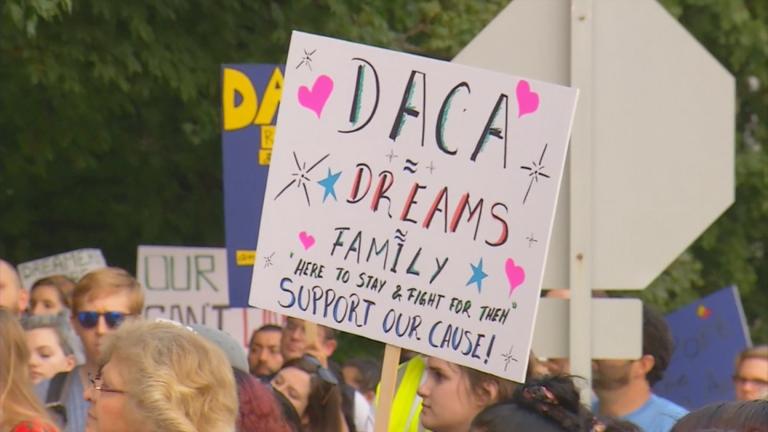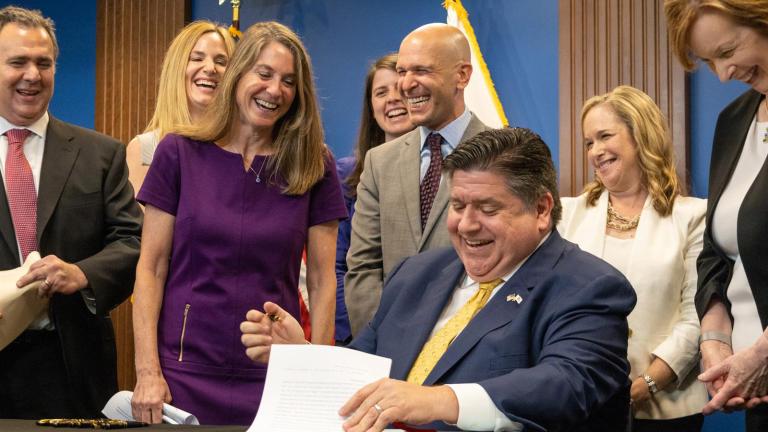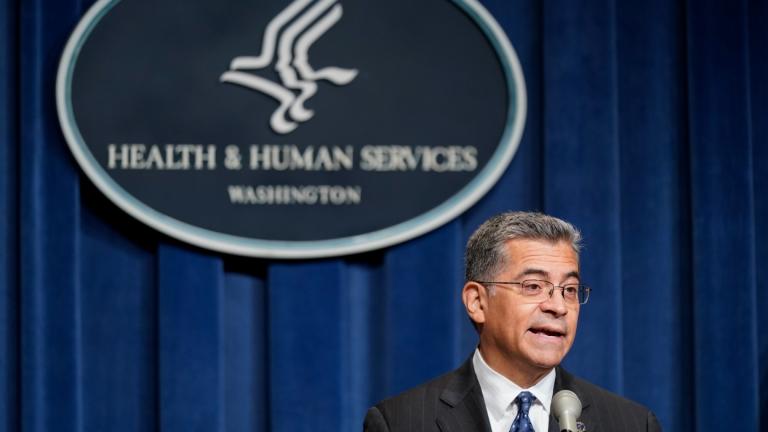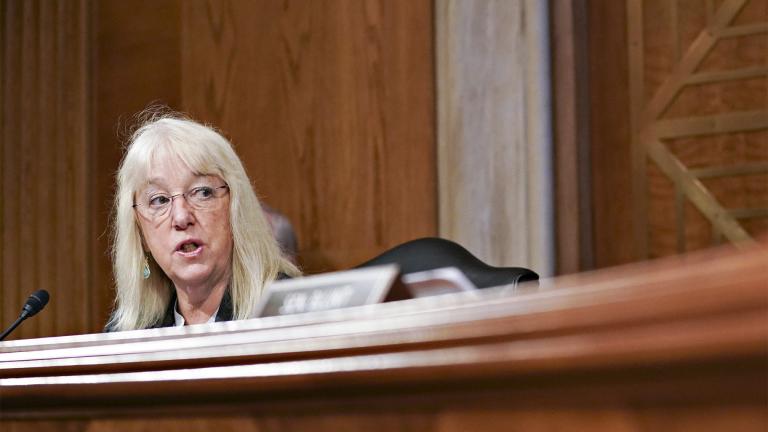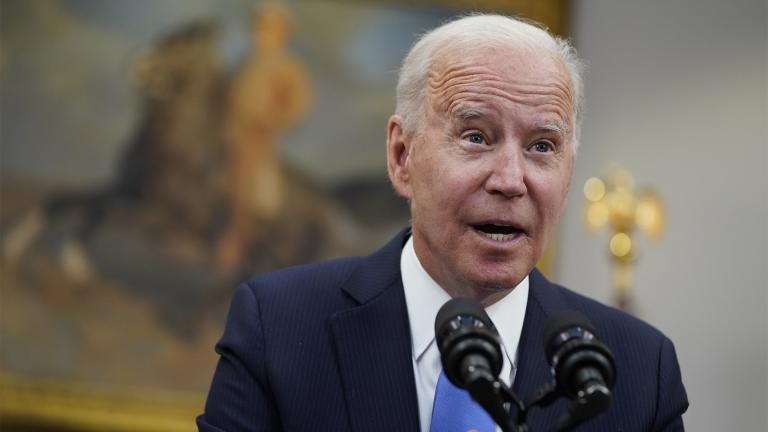The Republican-led Congress is poised to repeal much of the 2010 Affordable Care Act, with President-elect Donald Trump ready to sign legislation to “repeal and replace” Obamacare.
But what’s unclear is what exactly will be repealed next week. Lawmakers are grappling with the reality that 20 million people could lose their health insurance coverage if it isn’t replaced with something else.
Here to talk about the public health consequences of an Affordable Care Act repeal is Dr. John Jay Shannon, CEO of the Cook County Health and Hospitals System.
Below, an edited Q&A with Shannon.
![]()
Cook County Health and Hospital System has over 300,000 patients coming in for more than a million visits a year. What will happen if Obamacare is repealed?
Shannon: We think it’s not going to be repealed because of the human toll it’ll exact. There needs to be an operational replacement to give people the same services they have today. One million people in the state of Illinois would be without insurance. It would be political suicide for the Republicans. Across the state, there are more than 600,000 Affordable Care Act enrollees. One in four residents across the state are Medicaid recipients. In Cook County, there are between 1.5 to 1.6 million people on Medicaid. The repeal won’t be operationalized without a replacement.
Many of the patients at Cook County Health and Hospital System use CountyCare. What is CountyCare?
Shannon: CountyCare is a Medicaid-managed care health plan. Medicaid enrollees can go to a bevy of providers throughout the county which also includes providers at all federally qualified health centers across the county of Cook.
Illinois taxpayers subsidized Cook County health care about $482 million in 2009. How has the Cook County Health and Hospital System overall financial health changed since CountyCare started?
Shannon: We’ve seen an inversion of people from uninsured to insured.
In 2011, about 45 percent of our patients had insurance. Today it is 67 percent. And there was a marked reduction in revenue from Cook County taxpayers – a reduction of $360 million per year since 2009. In fiscal year 2017, that number is $111 million. We just closed the books on fiscal year 2016, and it was the third year in row that we’ve balanced our books – that is the first time in history, three years in a row. It’s directly tied to an increase in Medicaid revenue.
 (Chicago Tonight)
(Chicago Tonight)
If ACA is repealed, would Illinois taxpayers need to pick up the tab again?
Shannon: We don’t know. The important thing to focus on is that this organization is 180 years old. We respond to needs of underserved and vulnerable populations and we’ve done that under many different administrations throughout the years. Last year Cook County Health wrote checks for $600 million to network providers, drug stores, long term care facilities, medical equipment providers, etc. across the region. This is about maintaining regional stability. We’re focusing our energy on not having the rug pulled out without a replacement that’s good or better.
Repealing is the wrong thing to do clinically and it’s a bad business decision, too.
People want to keep the good parts of ACA like keeping kids on adults plan until they’re 26 years old and covering preexisting conditions. How can that happen without keeping other parts of ACA?
Shannon: ACA is complex, with lots of interdependencies, and keeping some options without the things that pay for it defies insurance logic. You have to have people who buy insurance who don’t use the premiums to help pay for the people who do use the services. It’s easy to throw rocks at the plan from the outside. But it’s highly complex, and lawmakers have to now think about the consequences of meddling. It has been most successful at providing access to people who didn’t have health insurance before. I hope we don’t see an uptick in uninsured. It’s not right. It’s immoral to not have more people covered in this country. We can’t go back to the dark days of 47 million people not having insurance.
How are you preparing for the worst-case scenario?
Shannon: We’re doing a number of things. We’re continuing on the path of improving our own services. We’re doing as much we can with the resources we have to provide quality health care. We’re focusing on more patient-centered services. From a political standpoint, we’re reaching out the General Assembly in Springfield and making human and business arguments to maintain expanded Medicaid. We’re also reaching out to people in D.C. to make the case to optimize and maintain the Affordable Care Act.
Related stories:
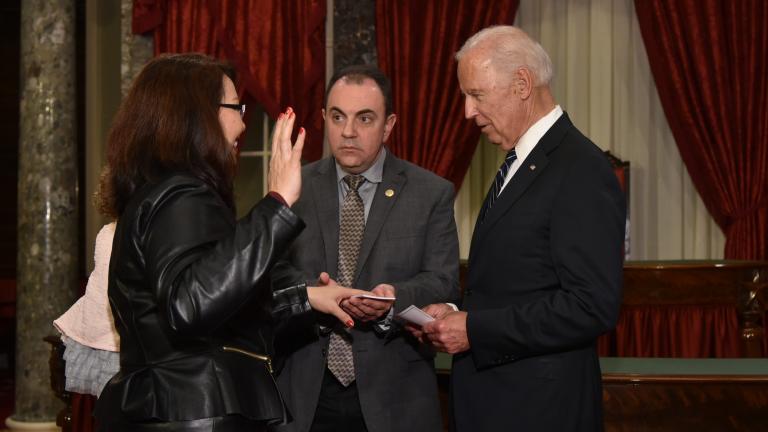 Illinois Delegation Split on Repeal of Obamacare
Illinois Delegation Split on Repeal of Obamacare
Jan. 3: On Tuesday, the 115th Congress was sworn in, including new members from the Illinois delegation. Up next, according to congressional leaders, is the repeal of the Affordable Care Act. How will that work, and will the Democratic Party aim to block it?
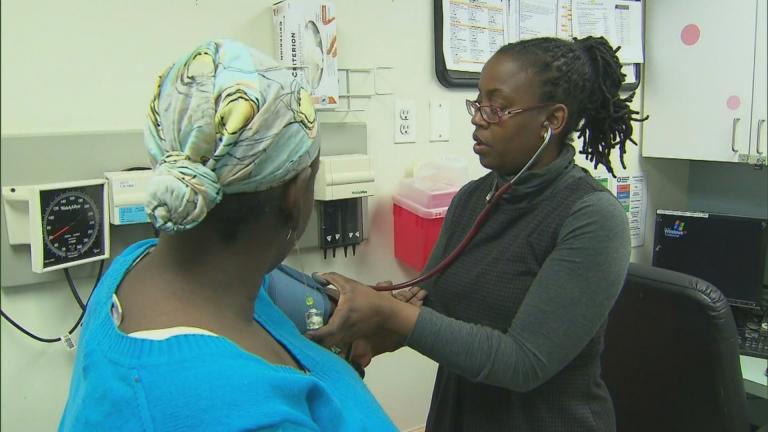 What’s Ahead for the Affordable Care Act?
What’s Ahead for the Affordable Care Act?
Nov. 15: On the campaign trail, Donald Trump spoke often about immediately repealing the Affordable Care Act. Now, as president-elect, he appears to be changing his plan. A look at what might be ahead for Obamacare.
 Premiums Rise, Choices Dwindle in Illinois Under Obamacare
Premiums Rise, Choices Dwindle in Illinois Under Obamacare
Nov. 1: Open enrollment begins for health plans under the Affordable Care Act. But in Illinois and other states, rates are rising and choices are dwindling. Find out why, and what options consumers have.

